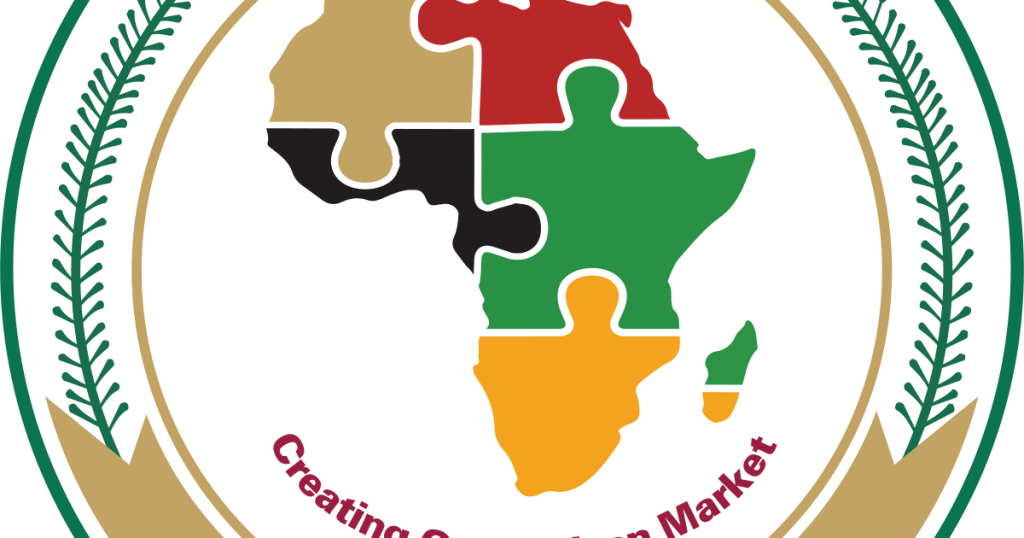Nigeria is poised to significantly expand its export capacity and tap into a vast African market under the African Continental Free Trade Area (AfCFTA) framework. With a projected export market potential of $79 billion, the country is actively pursuing strategies to leverage the agreement’s benefits, driven by the Ministry of Industry, Trade, and Investment. Dr. Jumoke Oduwole, the Minister, emphasized Nigeria’s leading role in the AfCFTA’s development and implementation, highlighting its contributions to the Negotiating Forum, and its ongoing efforts to align regulatory frameworks with AfCFTA protocols encompassing investment, digital trade, intellectual property rights, and competition policy. These proactive measures aim to unlock substantial economic gains, including a projected 15-17% increase in GDP growth, the creation of 11 million jobs across diverse sectors, and a significant 15% expansion in export capacity.
The collaboration between the AfCFTA Secretariat and the Nigerian Ministry of Industry, Trade, and Investment has focused on maximizing the potential of digital trade and trade in goods and services. Nigeria has emerged as a frontrunner in digital trade within the AfCFTA, launching initiatives like the Technology Export and Digital Trade Desk. The country is also developing comprehensive legislation to address electronic communications and signatures, implementing programs such as the National Talent Export Programme and Outsource to Nigeria Initiative, and investing in programs like the ‘Investment in Digital and Creative Enterprises’ and the ‘3 Million Tech Talent Programme’ aimed at bridging knowledge gaps in the digital ecosystem. These efforts capitalize on Nigeria’s burgeoning digital economy, with the ICT sector contributing 20% to GDP in Q2 2024 and e-commerce spending projected to reach $75 billion by 2025. Digital trade revenue is also expected to experience substantial growth, increasing from $5.09 billion in 2019 to a projected $18.3 billion in 2026.
Nigeria’s commitment to the AfCFTA is further underscored by its continuous updates to its trade policy to align with the agreement’s objectives. The country has submitted its Schedule of Tariffs and Services, intensified private sector engagement to prepare for intra-African trade opportunities, and adopted a proactive approach to trade facilitation and ease of doing business. Recognizing the importance of collaboration, the ministry is emphasizing partnerships with stakeholders like Afreximbank and the launch of the $1 billion Automobile Industry Facility Fund to support industrialization. Continued dialogue and capacity building are crucial to ensure inclusivity and successful AfCFTA implementation.
Furthermore, Nigeria’s strategic approach involves collaboration with various stakeholders, including private sector leaders, policymakers, and entrepreneurs. The emphasis is on removing trade barriers, enhancing competitiveness, and investing in both digital and physical infrastructure to facilitate trade and create opportunities for diverse groups, including women, youth, and small and medium enterprises (SMEs), to actively participate in regional markets. This comprehensive strategy aims to maximize the benefits of the AfCFTA and position Nigeria as a key player in the evolving African trade landscape.
The potential impact of AfCFTA on Nigeria’s economic growth is substantial. The projected 15-17% increase in GDP represents a significant boost to the national economy, driven by increased trade, investment, and job creation. The creation of 11 million new jobs across various sectors will address unemployment challenges and contribute to poverty reduction. The anticipated $79 billion increase in exports will diversify Nigeria’s economy, enhance its global competitiveness, and strengthen its position within the African market.
The AfCFTA holds immense promise for transforming intra-African trade and fostering economic development across the continent. For Nigeria, the agreement presents a unique opportunity to unlock significant economic potential, create jobs, expand its export capacity, and solidify its role as a leading economic power in Africa. The government’s proactive approach, coupled with its commitment to collaboration and capacity building, will be instrumental in realizing the full benefits of the AfCFTA and driving sustainable economic growth for Nigeria. The collaborative approach also extends to partnering with the AfCFTA Secretariat, led by Secretary General Wamkele Mene, whose leadership in advancing the AfCFTA framework and implementing critical protocols, particularly on digital trade, has been lauded by the Nigerian government. This collaborative spirit is crucial for navigating the complexities of implementing such a large-scale trade agreement and ensuring mutual benefits for all member states.














